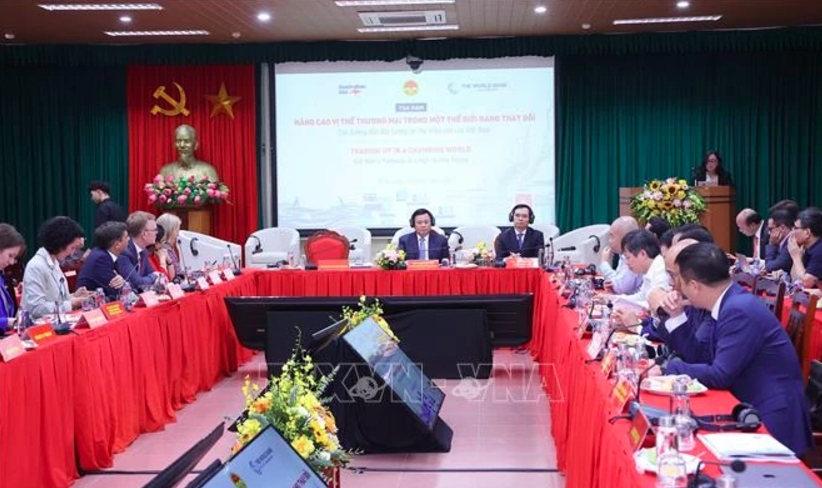Co-chaired by President of the Ho Chi Minh National Academy of Politics (HCMA) and Chairman of the Central Theory Council Prof. Dr. Nguyen Xuan Thang and World Bank (WB) Vice President for East Asia and the Pacific Manuela V. Ferro, the event brought together 150 delegates from ministries, agencies, international organisations, research institutes and the private sector.
HCMA Vice President Assoc. Prof. Duong Trung Y said a high-income future for Vietnam will require breakthrough, or even transformative changes in its policy and institutional reforms in the coming years, including bold strategies to ensure effective policy enforcement.
WB Country Director for Vietnam Mariam Sherman said in order to escape the "middle-income trap", Vietnam needs a change in its development trajectory, with broad reforms and fostered innovation. Key to this transformation is boosting labour productivity, encouraging greater private sector involvement, and prioritising education and skill development to cultivate a workforce adept at driving technological adoption.
Furthermore, Vietnam should focus on moving from low-value to high-value industries within global value chains, thereby enhancing its competitiveness and economic standing, she said.
To achieve high-income status by 2045, Vietnam needs to triple its current per capita income, which necessitates maintaining an average annual per capita growth rate of 6% over the next two decades, experts said.
The workshop proposed several solutions to facilitate this transition, including modernising technology, upgrading skills, and promoting innovation to elevate Vietnam's position within global value chains.
Delegates called for deepening trade integration, strengthening links between domestic firms and global value chains, and promoting the use of modern technology and specialised skills to create greater added value, particularly in the services sector. Additionally, transitioning to a low-carbon production model was highlighted as essential for sustainable growth.
Prof. Thang commended the World Bank’s report, describing it as a meticulously researched and scientifically-grounded document. He also noted its invaluable contribution to policy drafting, particularly in preparation for the 14th National Party Congress, scheduled for early 2026.



